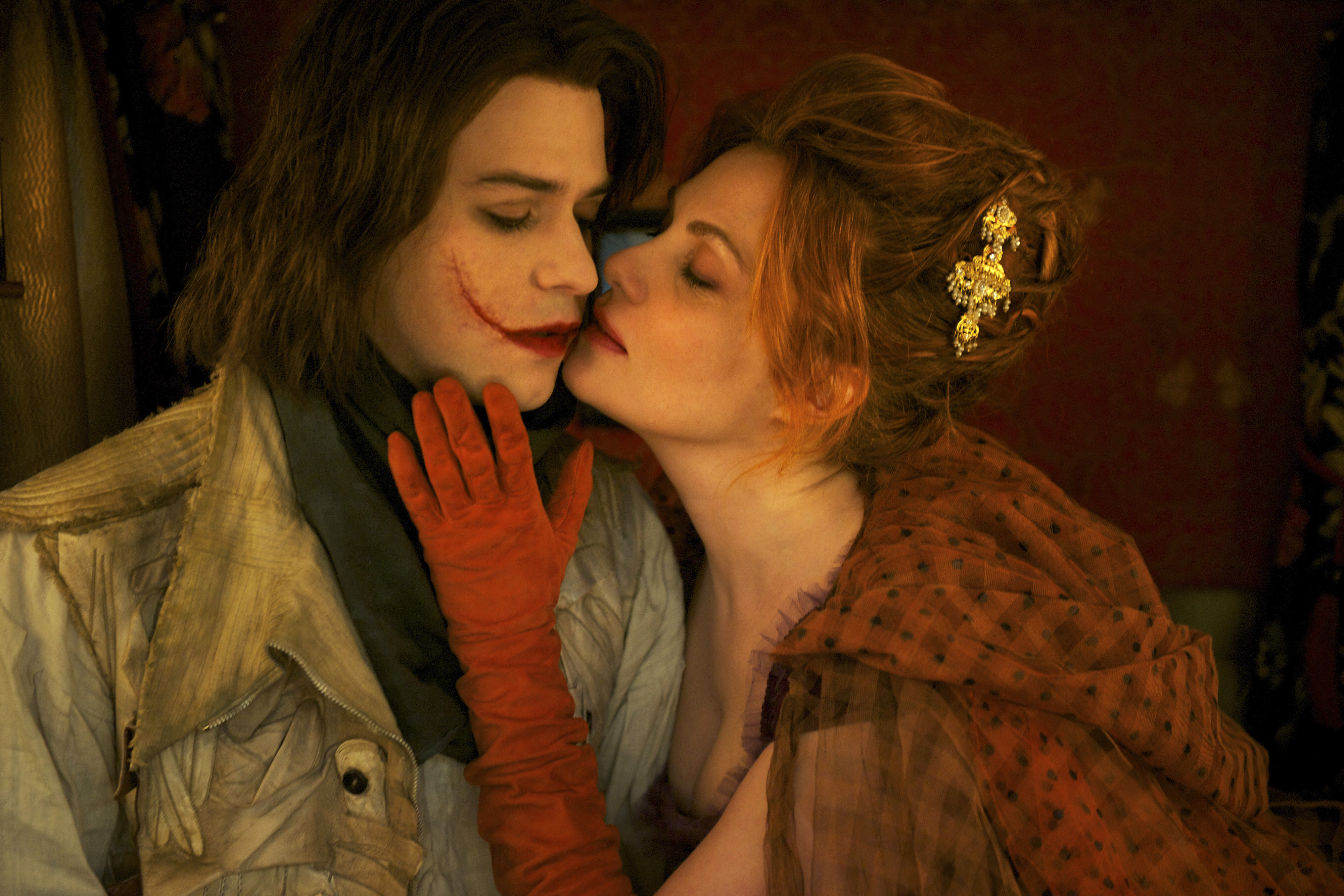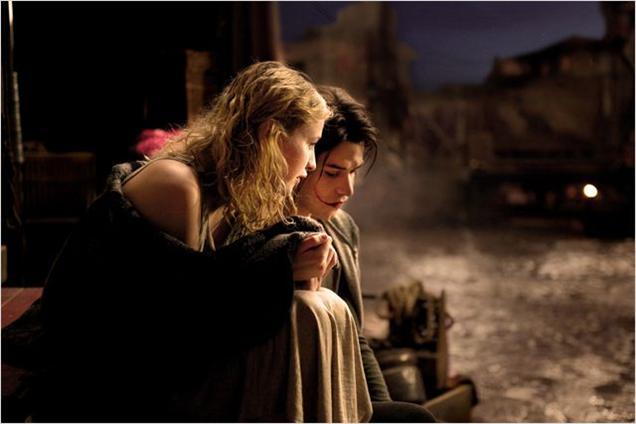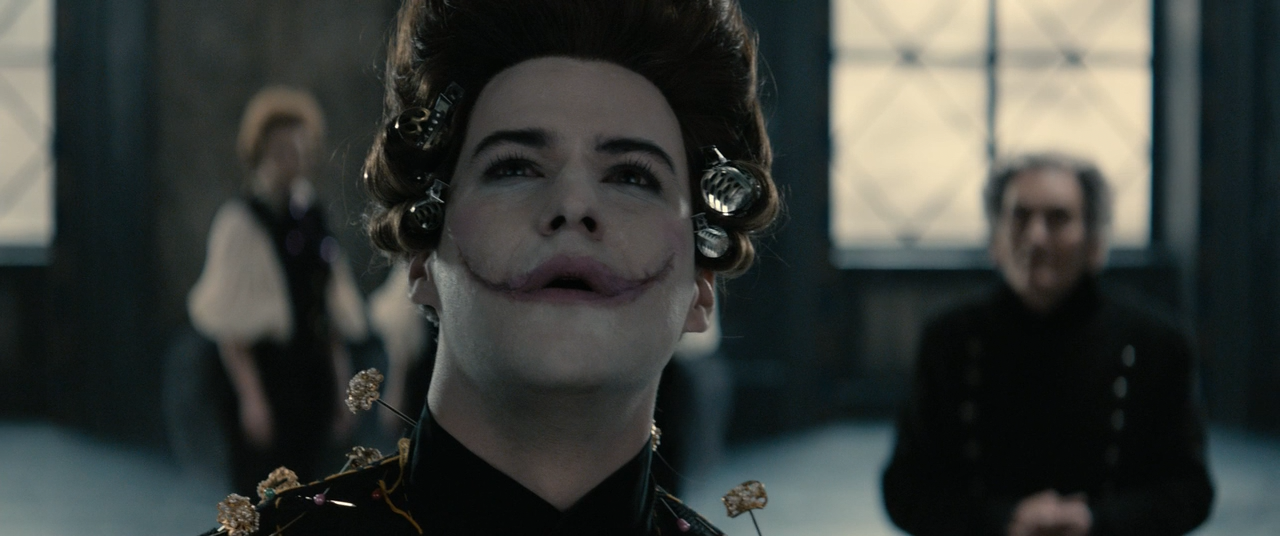This version is so unremarkable. Nothing about this movie stands out in way that is appealing. It is one of the most tepid movies I have ever seen. It’s so bland and that is slightly amazing. Typically movies have something about that makes them standout even if its negative point but this is so under-whemling, that at 25 minutes I felt we should have been at the thrity minute mark and nothing happened.
The plot does follow the book, though it has it differences. Like Barky just seems to want to keeps his position, Josiana is aged and is Gywnplaine’s cousin (I think) and they do sleep together which causes Dea’s depression and suicide by arsenic. Homo does very little and he not really a plot point like in the book. The movie puts a lot of focus one the performances of Gywnplaine, Ursus and Dea. Gywnplaine tries to quell his love for Dea not because of the blindness but because of their sister/brother being raised together relationship. Barky doesn’t send Ursus and Dea away in fact he brings to Gywnplaine and Dea hears Josiana and Gywnplaine going at it. Also no David and the Queen wasn’t present or seem to care about screwing over Josiana. That is all the differences I care to recall.
So how is this movie unremarkable. Well first off the acting. If these people were acting they either were directed terribly or they didn’t care. I also thought the casting on Dea and Josiana were way off. Dea is supposed to be a celestial ethereally young lady and do not get me wrong, the lady they cast is lovely but she had the wrong type for the role. She seemed earthy and natural. Mary Philbin was better cast. I hate to even say this but the lady who played Josiana was too old. I thought Josiana was supposed to be like Esmeralda, careful and full of life. This women just seemed like a bored housewife. It was a decision the filmmaker made that I neither get nor like though she was the best actress so there is the tradeoff.
The we have the colors, or rather lack of them. This movie likes grey, black and white. So the acting is dull and boring and so is the color palette. I won’t say that movies can’t have this style but you need to make it visually interesting and its not. The shots are pretty basic and when it tries to have an interesting shot it just seem like uninspired.
The costumes were also boring but what is really was flat, Gywnplaine’s make-up. It literally looked like they just drew on red paint to make his smile. This make him humanized but it looks so lazy. I can’t see why people would find it fascinating the same way as the 1928 version.
Also the music was inappropriate. At ending where Dea and Gywnplaine die the music during the credits is like super happy and carnival-esque. It was like a slap in the face.
At least Homo was a wolf but that is the only positive thing.
One more thing, I don’t want to give the impression that I know a ton about art history on a whole but at one point in the movie Barky brought out portraits of Gywnplaine’s parents. The first one was of his mother and it was a John Singer Sargent Portrait of the Duchess of Sutherland. Lovely portrait but it took me right out of the movie.
Do not recommend this version. Just watch the 1928 version.
Follow thehunchblog





